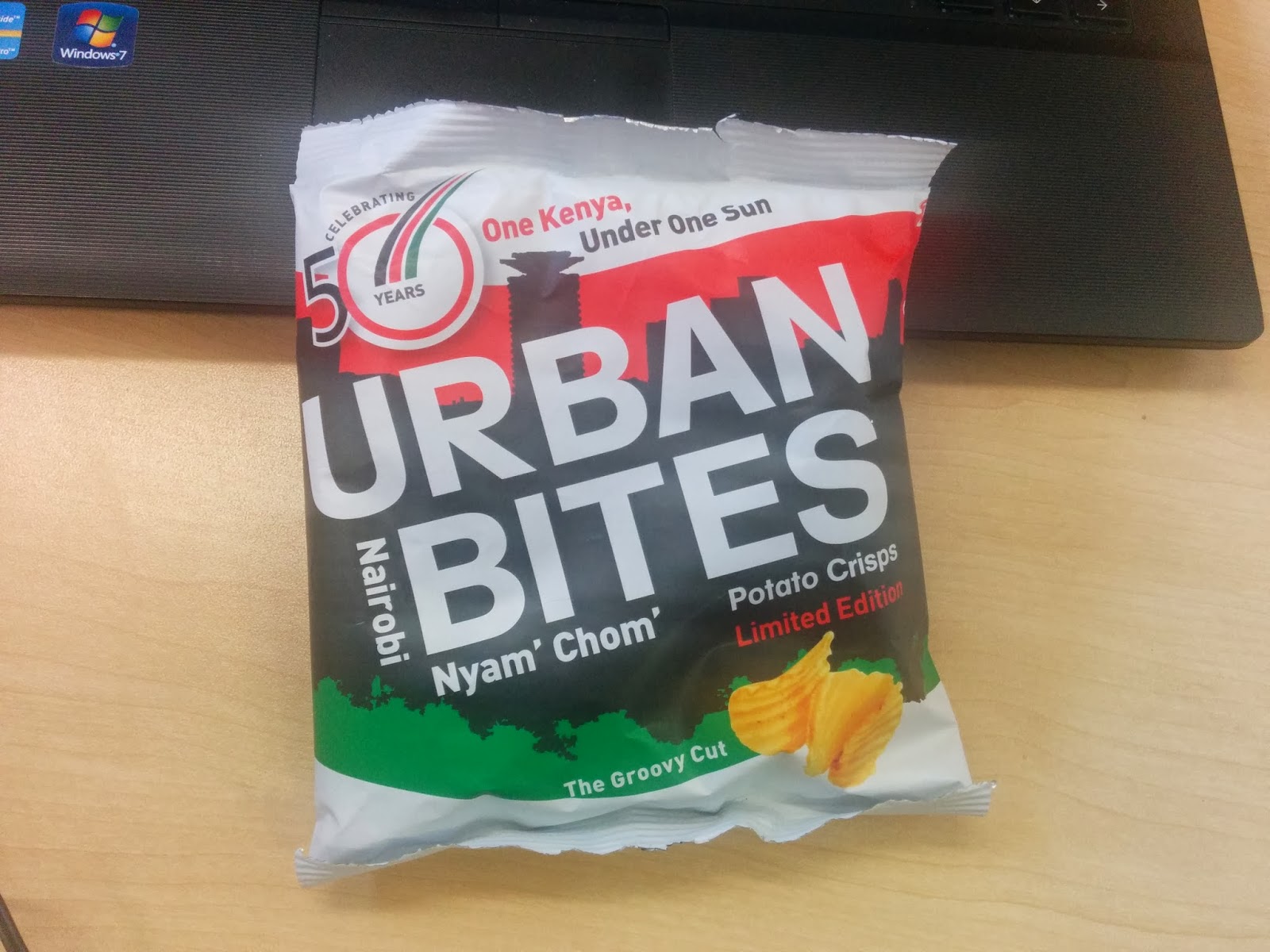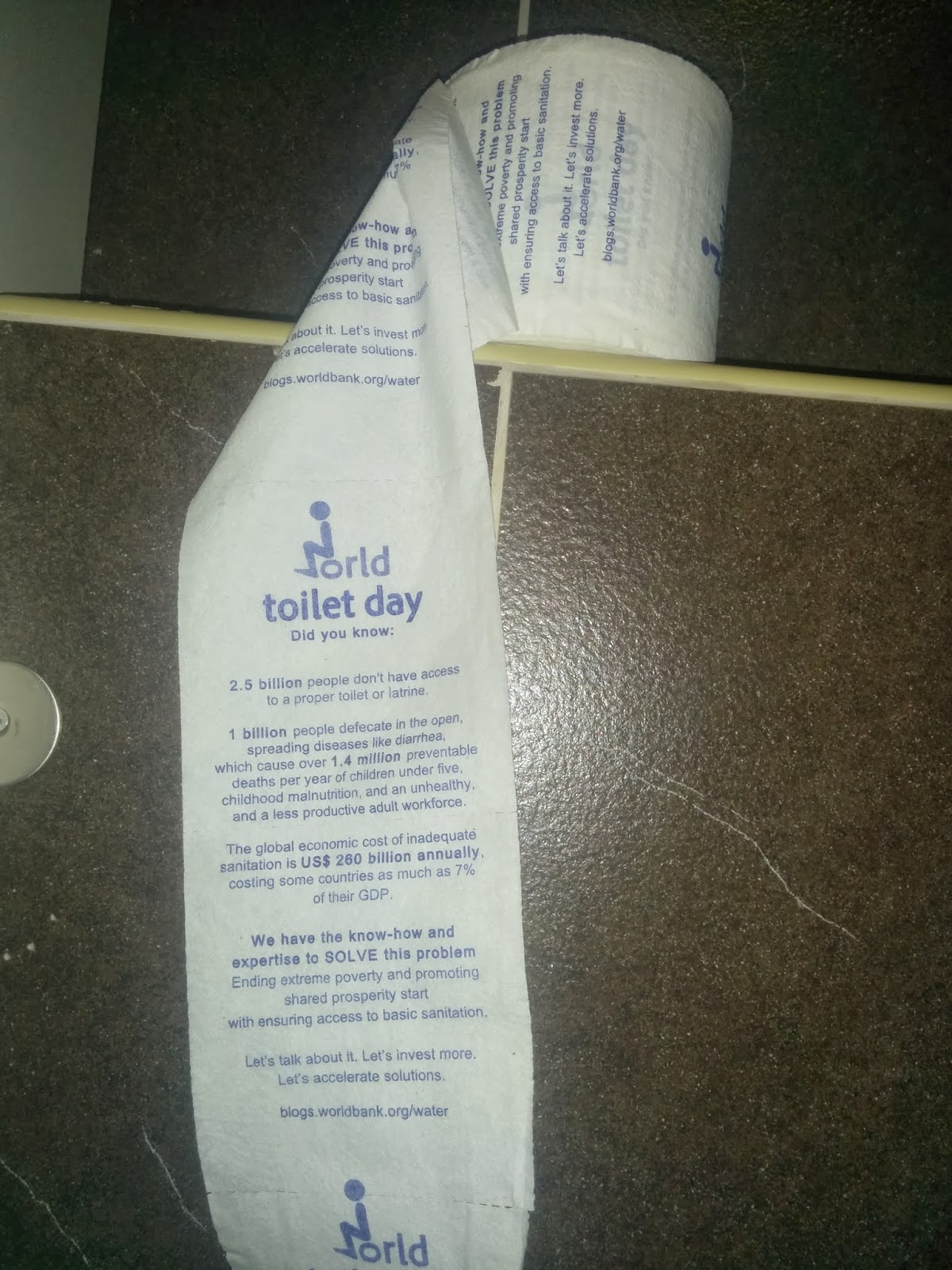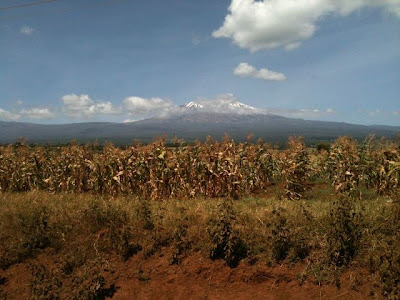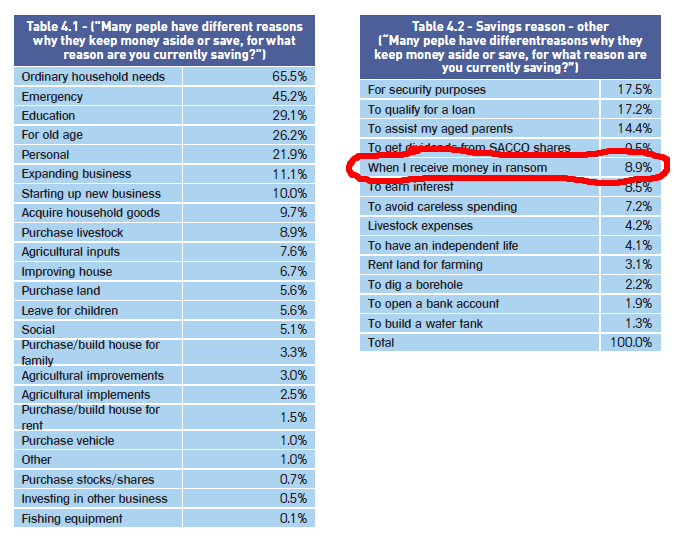15 January 2025
Why Kenya should partner with private schools to achieve Universal Secondary School
06 April 2025
Does it help to be African to study Africa?
For sure there is tacit local knowledge, but how you define “local” matters. Ken Opalo writes:
"As a social scientist, my knowledge of Kenya is largely informed by my experience as a Nairobian. Over the years I have had to learn a lot about the rest of Kenya, in much the same way an Australian would. In doing so I incurred a lower cost than a hypothetical Australian would, for sure, but the cost was not zero. And who is to say that I would necessarily be able to articulate a research agenda on whatever subject in Malawi better than a Southern Californian? What proportion of Kenyans can locate Bangui on a map?"
04 August 2025
Effective Altruism, RCTs, NGOs, & the Government End-Game
Good Ventures just gave a $25 million unrestricted grant to Give Directly on the advice of Givewell. That’s a lot of good news in one sentence, but it’s not even the best part. Givewell buried the lede when they mention around paragraph 20 that;
"GiveDirectly plans to discuss partnerships with the following types of institutions:
- Donor aid agencies
- Developing country governments (national and local). (For example, several governors in Kenya have already approached GiveDirectly about running cash transfer programs in their counties.)"
That’s what it’s all about. To really get sustainability and scale in social policy you need government involvement - that’s why the best NGOs combine a mixture of immediate direct service delivery in places where government just doesn’t have the capacity to deliver, with support to interested governments to build that capacity for the longer-term, often at the local level where administrators struggle to actually implement well-designed central policy documents, and with innovation in new models of service delivery, that governments might later adopt, of which GiveDirectly is clearly a strong example. Similarly whilst Innovations for Poverty Action and J-PAL may have started off following that recently infamous Kremer-Miguel deworming study by working on service delivery through small NGOs, their focus is on things that can work at scale, and having built a reputation through working with NGOs have been able to transition to working with governments (for example in Ghana and Peru).
"Government and NGOs learn from each other to improve what they do. In particular, many government agencies notice the successes achieved by NGOs and, whether intentionally or not, mimic their actions"
So yes, maybe some of the effective altruists can be accused of being philosophers not development wonks, and potentially even naive about politics, but for every anecdote-backed theoretical case for how aid might undermine the process of building citizen-state accountability, I can come up with an anecdote-backed theoretical case for how aid can support improved governance through innovation in service delivery models, and until we get some quantitative evidence on the issue, I don’t see how else we’re going to resolve the debate.
Did I miss anything?
13 February 2025
If you are buying flowers for tomorrow, buy them from Kenya
28 January 2025
My favourite thing about the World Bank Nairobi office
21 December 2024
60% discount on holiday giving
I just discovered that this PROBLEM IS NOW SOLVED.
The new Giving What We Can Trust is eligible for Gift Aid, and they will pass on your money directly (plus gift aid) to the charity of your choice (as long as its either one of their recommended charities, or one of Givewell's recommended charities, which GiveDirectly is, though I'm guessing there is some additional bank charge for the trust to send money to GiveDirectly in the US?).
On top of this, Good Ventures (an awesome foundation financed by one of Facebook's co-founders) is offering a 100% match for any donations to GiveDirectly up to January 31st 2014.
So if you give £100 to the trust, this becomes £125 with gift aid, and £250 with the match (which is your 60% discount), which minus processing fees comes to around £225 directly in the hands of a family living in extreme poverty somewhere in rural Kenya, a pretty hefty chunk of cash when you're living on a dollar a day.
Big thanks to everyone at Give Directly, Give Well, Giving What We Can, Good Ventures, and Innovations for Poverty Action who have made this stunningly simple effective efficient way to make the world a slightly better place possible.
Merry Christmas!
28 October 2024
Cash transfers in Northern Kenya
OPM is managing the evaluation of the project: you can see the Year 1 impact report here.
15 August 2025
The economics of female genital mutilation
We also had a presentation on female genital mutilation, or female circumcision as some insist on calling it, and it seemed to me it could be characterized, at least in part, as a multiple equilibrium, collective action problem with tipping points. So I asked what they knew about tipping points -- the point where the social pressure switches from doing it to not having it done as fewer and fewer have the procedure done to themFrom Mark Thoma's recent trip to Kenya.
04 July 2025
New OPM research
2. How to making agricultural financing work in Rwanda (it's about post-harvest storage & marketing, not inputs)
3. How savings banks can provide better services for the poor
4. Assessing value for money of donor support to the financial sector in Kenya
29 May 2025
Does aid improve governance?
Brass writes
"Governance is no longer the purview of only public government actors; it is increasingly seen as a shared or networked process among several types of organizations.
Government and NGOs learn from each other to improve what they do. In particular, many government agencies notice the successes achieved by NGOs and, whether intentionally or not, mimic their actions, recalling DiMaggio and Powell’s (1983) mimetic isomorphism. This is most obvious in their attempts at participatory approaches, in which opinions from the village to the city are solicited (if not always actually listened to). As a result, governance in Kenya has slowly begun to more democratic, moving away from its hierarchical, authoritarian past."She also reports broad individual support for NGOs in Uganda and Kenya (perhaps not a surprising result that people report to surveyors that they like people who give out free stuff);
"in a survey of NGOs in Uganda, 90% of organizations reported involving host communities in the delivery of services, and nearly 60% of beneficiaries of these NGOs agreed that the NGOs seek community participation (Barr, Fafchamps, and Owens 2005). While NGOs claimed more participatory involvement than the respective communities saw, 60% participation rates are significant. Relative to the Kenyan government and its public administration over the past 40 years, NGOs unquestionably try to be more participatory and accountable.
Kenyan citizens agree, viewing NGOs as looking after the interests of the common man. When asked, “To what extent do you think NGOs have the interests of the people in mind?” in a survey, the author conducted on service provision and service providers with 501 Kenyans, 70% of respondents answered positively, and only 20% responded negatively."Finally, a separate paper finds that NGOs on average choose to locate themselves where need is great, but also in convenient locations (close to roads and towns - which isn't necessarily the worst thing for cost effectiveness), and best of all not due to political factors.
14 May 2025
How to improve education: Pay teachers less
across all these studies, contract teachers never do worse than civil service teachers, despite being younger, more inexperienced and more likely to not have had formal teacher training. In value-for-money terms, each contract teacher is at least four to five times as productive as a regular public service teacher: in Kenya, the average pay of a civil service teacher is $261 per month compared to $56 for a contract teacher. The problem is not that the contract teachers are being paid too little (they get paid salaries comparable to private school teachers in these countries) but that public sector employment just has a huge premium attached.
29 March 2025
Maasai Land
Last week I was mostly in Kajiado County. Maasai-land. The County is apparently the third richest in Kenya (by the KIHBS, but this number is disputed), though this wealth is driven by "outsiders" building new developments along the recently completed tarmac road to Nairobi. It can now take as little as an hour from Kajiado Central. The Maasai struggle to compete in the new economy, with limited education and skills.
I spoke to an educated professional (middle class?) Maasai who expressed his dismay at the erosion of the traditional Maasai way of life, as the government's land privatisation policy had led to the parcelling off of land, obstructing traditional migratory herding practices based on traditional beliefs that land is communally owned.
I sat there wondering how I could register some disagreement without sounding like a dick, and how this place epitomised the tension between modernisation and traditional ways of living, transported back to a development studies classroom of tedious debates on "what really is development?" I couldn't help but think that perhaps it was a little hypocritical for this well-educated man to sit in comfortable surroundings and talk about how tough it is for his people to have to give up their cattle herding.
Ultimately, for the Kenyan government to be able to afford to provide better health and education services for its people, it is going to need the revenues that come from the kind of economic development that comes with urbanisation and modernisation.
But this process is disruptive, and the best solution for the "losers" is not to put the brakes on development, but to provide compensation, safety nets, services, and the skills that they will need to engage in the growing economy.
17 March 2025
How to build resilience to climate change in Kenya
A growing body of evidence shows that safety nets are an important complement to efforts to improve the livelihoods of the poor, particularly in areas that remain vulnerable to shocks such as drought. Reliable access to safety net support allows households to take on more investment risk and thus produce higher returns.Gabriel Demombynes and Jane Kiringai (World Bank, Kenya)
04 February 2025
East African etiquette
There's also a great rule for when you are eating, or your hands are otherwise dirty - just offer a wrist instead. Simple, and avoids that English awkwardness where you don't know what to do. I'm bringing it back to England. Who's with me?
22 January 2025
Lenny Henry in Kibera
17 January 2025
Why do Kenyans save?
15 January 2025
Korogocho
Best t-shirt slogan: “No Handouts, Just Empower me.”
Best blog on the neighbouring Kariobangi light industrial cluster where many Korogocho residents work.
What you can do to help: apparently uneaten plane meals from Kenyan Airways get dumped at the enormous dandora dumpsite adjacent to Korogocho, and end up in the market (including things like quite expensive Out of Africa brand Macadamia nuts). So the moral of the story: next time you fly Kenya airways, don't eat your plane meal and donate it to a poor slum dweller!
Kenyan Political joke of the week
Little Njoro of Buru estate in Nairobi wanted Kshs 1,000 badly and prayed to God for two weeks but nothing happened.
Then he decided to write God a letter requesting the Kshs 1,000. When the postal authorities received the letter addressed to God from Buru buru in Kenya, they decided to send it to State House.
The letter never even got to the president but an aide was very touched and so he sent the boy Kshs 200. He felt that this was a lot of money for a small kid.
Njoro was delighted when he received the Kshs 200 and sat down to write a thank you note to God, which read:
Dear God,
Thank you very much for sending the money.
I don’t want to sound ungrateful but I noticed that for some reason you had to send it through State House and, as usual, those crooks deducted a whole Kshs 800. My teacher tells me that you never forget, but did you not this once forget that Kenya is one of the most corrupt countries in the world and that as my dad is always saying corruption starts at the top?
I suggest you send an angel next time.HT: @RichardTrillo
Thanks,Njoro.
08 January 2025
I'm off to Kenya
Sorry. You can blame Stefan Dercon because I found this on his old website.
24 October 2024
Exploring the Portaloo Product Jungle
Which is a lovely illustration of Hidalgo and Hausman's product space theory of economic development. The economy is a bit evolutionary, with lots of random leaps, but some products (and services) are closer together, and so it only takes a small leap (like Nderitu's). Some are much further apart. So the things that an economy can produce tomorrow depend a lot on what you can produce today (learning by doing and path dependence are not new ideas in development economics, but this is a sophisticated new data-driven way of looking at it).
Or as Rodrik puts it
think of the product space as a forest, goods as trees, and entrepreneurs as monkeys. Countries develop as monkeys jump from tree to tree. Trees further away are harder to jump to. Some parts of the forest are denser than others. What trees you have monkeys on today determines where your monkeys will be tomorrow. And it goes from there.




